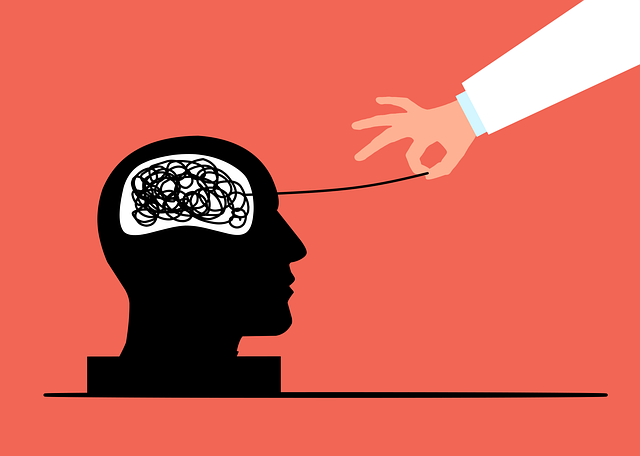Cultural competency is key in treating young children with sexual dysfunction, where understanding diverse cultural beliefs shapes tailored therapy. Therapists can employ self-awareness exercises and culturally sensitive workshops to create trusting relationships, improve outcomes, and reduce therapist burnout. Comprehensive training programs, led by healthcare institutions and cultural experts, are essential for updating practices based on research and community input. This holistic approach enhances inclusive healthcare environments, benefiting children and families through effective, respectful care tailored to their unique cultural identities.
Healthcare provider cultural competency training is a vital component in delivering effective treatment, especially in diverse communities. This article explores the significance of cultural sensitivity in healthcare, focusing on its impact on therapy for young children with sexual dysfunction. We delve into how understanding cultural nuances can enhance patient outcomes and provide practical insights into designing and implementing training programs to foster cultural competency among providers. By promoting inclusive practices, these initiatives ensure every child receives sensitive, culturally appropriate care.
- Understanding Cultural Competency in Healthcare: A Foundation for Effective Treatment
- The Impact of Cultural Sensitivity on Young Children's Sexual Dysfunction Therapy
- Designing and Implementing Training Programs to Enhance Cultural Competency Among Providers
Understanding Cultural Competency in Healthcare: A Foundation for Effective Treatment

Cultural competency in healthcare is a fundamental aspect of providing effective treatment to patients from diverse backgrounds. It involves understanding and appreciating the cultural beliefs, values, and practices that shape an individual’s health experiences and behaviors. This knowledge enables healthcare providers to deliver care that respects and considers these differences, fostering trust and improving patient outcomes. In the context of therapy for young children with sexual dysfunction, cultural competency is crucial. For instance, self-awareness exercises tailored to different cultural contexts can help therapists understand the unique perspectives and fears surrounding sexual health in various communities.
Organizations offering stress management workshops or mood management programs designed with a cultural lens can significantly enhance these therapeutic interventions. By incorporating activities that resonate with diverse populations, healthcare providers ensure that their approach is not only culturally sensitive but also more likely to engage and benefit children and their families. This holistic understanding of cultural competency serves as a cornerstone for delivering quality care, especially when addressing complex issues like sexual dysfunction in a young population.
The Impact of Cultural Sensitivity on Young Children's Sexual Dysfunction Therapy

Cultural sensitivity plays a pivotal role in effective therapy for young children with sexual dysfunction. Children’s experiences and expressions of sexual behaviors are deeply influenced by their cultural backgrounds, family dynamics, and personal histories. Therapists who lack cultural competency may struggle to create a safe and supportive environment, potentially hindering the progress of treatment. When healthcare providers exhibit a genuine understanding of diverse cultures, they can adapt their approaches, ensuring that every child receives tailored support.
Incorporating cultural sensitivity into therapy for young children with sexual dysfunction involves strategies like promoting inner strength development and self-esteem improvement through culturally responsive practices. By avoiding stigmatization and judgment, healthcare providers can encourage open communication, fostering a sense of trust. This, in turn, facilitates a deeper exploration of the child’s experiences, leading to more successful outcomes and preventing potential burnout among therapists implementing these sensitive yet crucial burnout prevention strategies for healthcare providers.
Designing and Implementing Training Programs to Enhance Cultural Competency Among Providers

Designing and implementing effective training programs is a cornerstone in enhancing cultural competency among healthcare providers. These programs should go beyond surface-level awareness and aim to foster deep understanding and empathy for diverse patient populations. Incorporating interactive workshops, case studies reflecting real-life scenarios, and role-playing exercises can significantly improve providers’ ability to navigate complex cultural terrains. By engaging in these activities, professionals learn to recognize and appreciate the impact of cultural factors on health beliefs, communication styles, and treatment preferences. For instance, training sessions could delve into the Mind Over Matter principles, helping therapists understand how self-awareness exercises and inner strength development can be tailored for young children presenting with sexual dysfunction, ensuring culturally sensitive therapy.
Implementing such training requires collaboration between healthcare institutions and cultural experts to ensure relevance and accuracy. Regularly updating the curriculum based on emerging research and community feedback is essential. Moreover, providing ongoing support and fostering a culture of continuous learning ensures that providers stay committed to cultivating their cultural competency skills, thereby improving patient outcomes and creating more inclusive healthcare environments.
Cultural competency training is an indispensable tool in enhancing the quality of healthcare, especially in addressing complex issues like sexual dysfunction in young children. By equipping providers with the skills to navigate diverse cultural contexts, we can ensure more effective and sensitive therapy. Implementing tailored training programs that build on foundational knowledge, as outlined in this article, will empower healthcare professionals to deliver compassionate care that respects and embraces different cultural backgrounds. This approach is vital for fostering trust, improving patient outcomes, and ultimately creating a more inclusive healthcare system.








